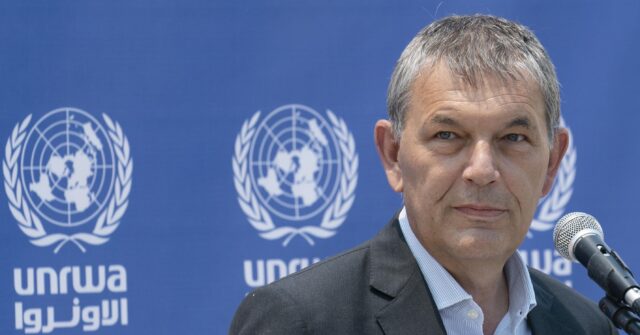On a recent Monday, the Israeli parliament, known as the Knesset, enacted legislation that prohibits the United Nations Relief and Works Agency (UNRWA) from functioning within Israel and imposes significant limitations on its operations in both the West Bank and Gaza Strip. The UNRWA was established in 1949 in response to the influx of Palestinian refugees following the first Arab-Israeli war, providing essential services and aid to millions of Palestinians. Despite its humanitarian mission, critics argue that the agency has deviated from its core purpose and has fostered anti-Israel sentiment within its ranks. Evidence has emerged linking UNRWA staff to acts of terrorism against Israel, including involvement in recent attacks, which has prompted the Israeli government to reassess the agency’s role in the region.
Israeli officials, including Yuli Edelstein, the chair of the Foreign Affairs and Defense Committee, expressed firm opinions regarding UNRWA during the legislative process. Edelstein criticized the agency for transforming from a humanitarian entity into a facilitator of terror and poverty, suggesting that the organization perpetuates a cycle of suffering to retain its relevance and operational capacity. This perspective reflects a broader sentiment within Israel that the UNRWA has become interwoven with extremist ideologies rather than serving its original purpose of providing humanitarian aid. The Knesset’s decision to terminate UNRWA’s operations represents a significant shift in policy, ending what many view as a prolonged toleration of the agency’s presence in the region.
The legislation comprises two primary bills. The first explicitly bars UNRWA from conducting any activities within Israel, including running institutions or providing services. This provision underscores a clear stance taken by the Israeli government against any affiliation with the agency moving forward. The second bill addresses the formal agreement that exists between Israel and UNRWA, indicating that this treaty will dissolve seven days after the law is ratified. It also mandates that no Israeli governmental offices can engage with UNRWA representatives, effective within three months. This comprehensive approach reflects Israel’s strategy to eliminate any operational framework that could enable UNRWA to navigate political or humanitarian corridors within the country.
Despite Israel’s parliamentary support for the bills, the response from the Biden administration has been critical. U.S. officials have expressed opposition to the legislation, urging Israel to maintain some level of collaboration with UNRWA, especially concerning humanitarian efforts in Gaza. The U.S. administration’s stance highlights the complexities of international diplomacy surrounding humanitarian aid to Palestinian territories, particularly in the wake of increasing violence and political tensions. There are concerns that an abrupt severance of ties with UNRWA could exacerbate humanitarian crises and instability, which could have wider repercussions for regional security and U.S.-Israel relations.
Furthermore, the legislation allows continuing investigations into UNRWA employees implicated in terrorist activities, signifying Israel’s commitment to hold accountable individuals associated with violence against its citizens. This judicial oversight is meant to deter potential complicity in terrorist acts, reinforcing the government’s view that the agency has been compromised. Additionally, the law stipulates that the National Security Council in Israel must provide biannual updates on the implementation of these laws, ensuring ongoing scrutiny of the situation relating to UNRWA’s activities and broader security implications.
In conclusion, the Knesset’s decision to ban UNRWA from operating in Israel marks a pivotal moment in Israeli policy, reflecting longstanding frustrations over the agency’s perceived failure to act in alignment with its humanitarian mission. While proponents of the law argue that this move will ultimately enhance security and reduce complicity with anti-Israel forces, critics, including U.S. officials, warn that it may worsen the humanitarian situation for millions of Palestinians reliant on aid. The future of both UNRWA and the Israeli-Palestinian dynamic will likely depend on how these laws are implemented and the subsequent reactions from local and international stakeholders. As tensions remain high, the implications of this legislation could reverberate through humanitarian efforts and diplomatic relations in the region.

